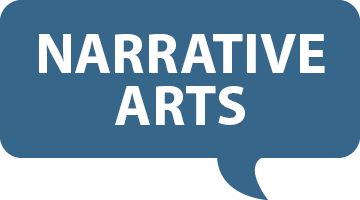Why tell stories for social change?

Storytelling is exciting in theory, but once you do take a look at your already over-crowded calendar, it can quickly feel like one…more…thing. But if you keep in mind how storytelling strengthens everything an organization does—from recruiting supporters to running programs—it begins to look less like a burden and more like an opportunity. Why tell stories?
Because you know from personal experience that it works.
Think about the past two or three hours. During that time, you’ve probably heard, told, or thought of many stories. Maybe you listened to a radio news report, wrote a grant proposal, went to a 12-step meeting, attended a religious ceremony, watched a web video, had a therapy session, or fantasized about a vacation. Or you may have plotted a course for how your group will apply pressure to the arc of the moral universe. Story is sometimes described as a powerful “tool,” and it certainly can be that. But for a moment, think of stories less as a discrete instrument or product and more as a fundamental aspect of human consciousness; they’re an essential part of how we think, feel, remember, imagine, relate—and create change.
The universe is made of stories, not of atoms.
– Muriel Rukeyser, in her poem “The Speed of Darkness“
Because the research tells us it works.
Studies of people’s brains while they’re watching a movie show that “the brain doesn’t look like a spectator, it looks more like a participant in the action,” writes Jonathan Gottschall. “That’s why our hearts race when the hero of a story is cornered—why we weep over the fate of a pretend pet like Old Yeller. Stories powerfully hook and hold human attention because, at a brain level, whatever is happening in a story is happening to us and not just them.” And neuro-economist Paul Zak’s lab studies indicate that people listening to a story with a classic dramatic arc release more brain chemicals associated with empathy—and that, in turn, prompts more generosity. Even DARPA, the research and innovation arm of the Department of Defense, has acknowledged the importance of storytelling in a “security context.”
Because it builds community…and it’s fun.
We do nonprofit or activist work because of the change that we’re working for, but also because it helps us form a community. Statistics and lists of facts can communicate information, but stories communicate meaning and emotion, which are what motivate people to act. People don’t relate to issues, they relate to other people—in other words, to their stories. And once we understand one another, we can identify our shared vision for a better world and work to make it reality. Besides, telling stories is fun and creative. Life has enough meetings, conference calls, lectures, bullet points, and fact sheets.
Because stories help people understand the political nature of their own experience.
If one person tells a story about her own entanglement with the criminal-justice system, audiences might just see her as an individual who got a bad break. But as other people share their stories on this topic, patterns emerge—say, that African Americans are targeted way out of proportion to their numbers in the population—and the social nature of their experience emerges. And by uncovering the social nature of problems, groups can then formulate action to solve those problems.
Further exploration:
- Making the Case to Invest in Story,” by Neill Coleman on HatchForGood.org.
- “This Is Your Life (and How You Tell It),” by Benedict Carey in the New York Times.
